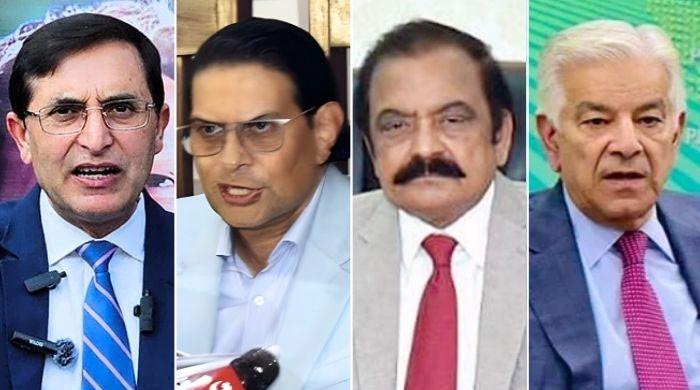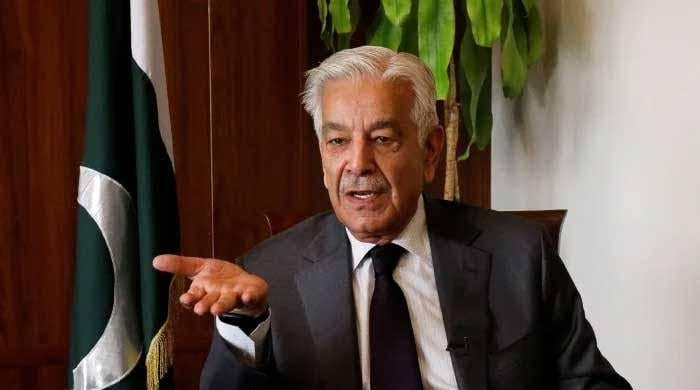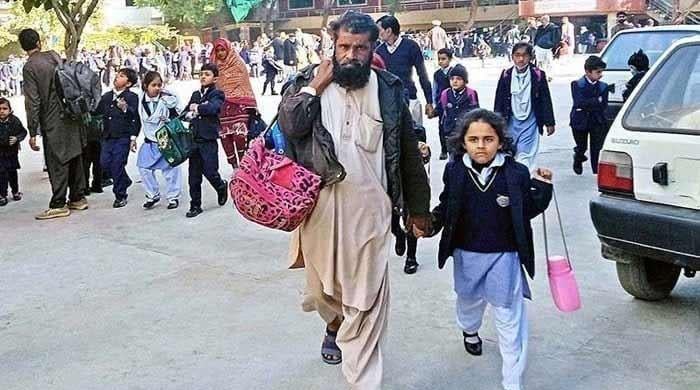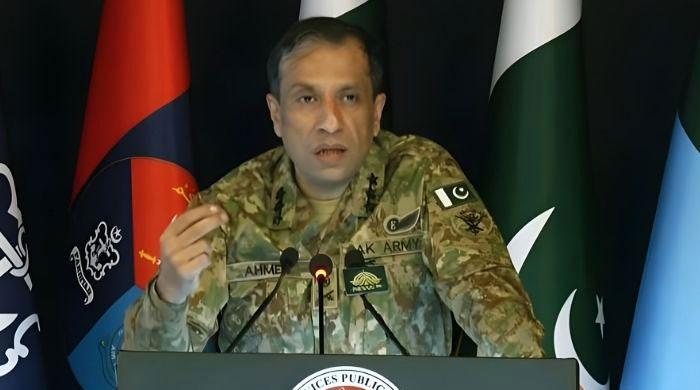'People of Balochistan more patriotic than us', Omar Ayub tells lawmakers in NA
"A fact-finding mission should go to Balochistan and assess the situation," says PTI politician
September 04, 2024

- A fact-finding mission should go to Balochistan: Ayub.
- Asks to form committee to talk to the province's people.
- Mengal resigned from National Assembly on September 3.
As the political landscape of Balochistan witnesses turbulence in the wake of the August 26 terror attacks and the resignation of veteran lawmaker Sardar Akhtar Mengal, Omar Ayub — the leader of the Opposition in the National Assembly — has termed the people of Balochistan "more patriotic" than the rest of the country.
Speaking during a session on the floor of the lower house of parliament on Wednesday, Ayub, the Pakistan Tehreek-e-Insaf (PTI) secretary-general, insisted on taking Mengal's resignation seriously, asking for redressal of the grievances pertaining to the province's stakeholders.
"A fact-finding mission should go to Balochistan and assess the situation," the politician said, demanding the formation of a committee that could talk to Balochistan's people.
A day earlier, Balochistan National Party (BNP-M) chief Akhtar Mengal resigned as a member of the NA over the "worsening situation" of his province, declaring no confidence in the state, the president and the prime minister.
"I announce my resignation from the Assembly today. I made this decision after witnessing the situation of Balochistan," said Mengal during the lower house's session.
Regretting that he could not do anything for the people of the province, the politician said they had not been given the right to rule for a year and that he had a lack of trust in the whole system.
"People are not interested in the issues of Balochistan and every time this issue is raised, we face a blackout," he said. "This assembly does not listen to us, what's the point of sitting here?"
Meanwhile, speaking on the NA floor, Ayub insisted that the ministers of the Balochistan government cannot talk to people and the province's youth does not want to listen to them.
"They [people of Balochistan] have a right to their resources. Talk to them," he said, claiming that the federal government doesn't want to talk to them.
"If they do not talk, how will the federation work?" he added.
Hinting at the lack of interest by the government in resolving the issue, the PTI leader said, "The tragedy is that dictation is taken from elsewhere."
The politico also spoke about the "persecution" being faced by his own party and its founder Imran Khan.
"The PTI people are being forcibly disappeared. Our prime minister [Imran Khan] is sitting in jail. The entire leadership has been put in jail in false cases."
Govt lost it's writ in Balochistan, KP: Fazl
Jamiat Ulema-e-Islam-Fazl (JUI-F) chief Maulana Fazlur Rehman, speaking on a point of order in the National Assembly today, said that the government's writ has ended in Balochistan and Khyber Pakhtunkhwa (KP).
"Groups equipped with rocket launchers and all kinds of modern weaponry are receiving extortion there," the JUI-F chief said.
The NA lawmaker said that the situation could be returned to normal in both provinces but it always worsened after statements insisting on the use of force.
Recalling his visit to Afghanistan in January this year, the cleric said: "When the state fails, we go there and the [law and order] situation is brought under control."
He claimed that he held "successful talks on border-related and all other matters" with the Kabul administration during his Afghanistan visit before the 2024 nationwide polls.
The JUI-F supremo called for immediate action from both the government and the opposition to address the law and order situation in Balochistan and KP.
He warned against dismissing political leaders and institutions, emphasising that neglecting their roles could be a grave mistake.
After strongly condemning the ongoing attacks on the armed forces and institutions, he urged both the government and the opposition to confront these challenges, saying parliament is the supreme institution.
The politician, who headed a multi-party opposition alliance — Pakistan Democratic Movement (PDM) — which successfully ousted former prime minister Imran Khan via a no-trust move in 2022, highlighted that experienced political leaders are being sidelined in favour of inexperienced and emotional youth, leading to further complications.
He stressed the necessity for empowered politicians to address and resolve these issues rather than centralising power and making unilateral decisions, which he believes is not a viable solution.
Addressing the geopolitical dynamics, Fazl said that the region has become a battleground for proxy wars involving major powers like the United States and China.
He pointed out that significant projects, such as the China-Pakistan Economic Corridor (CPEC), are encountering obstacles, particularly in areas like Dera Ismail Khan and Laki Marwat, where development work is impeded by security concerns.
What happened in Balochistan?
Balochistan, on August 26, was marred by a series of horrific attacks that resulted in over 50 deaths, including 14 security personnel, as militants affiliated with the banned Balochistan Liberation Army (BLA) targeted civilians, police, and security forces.
In one of the deadliest attacks, at least 23 passengers were killed after being offloaded from passenger buses and trucks in the Rarasham area of Balochistan's Musakhel.
Separately, at least 10 people, including police and Levies personnel, were martyred in a gun attack in Kalat.
Furthermore, at least 14 brave sons of soil, including 10 security forces soldiers and four personnel of law enforcement agencies (LEAs), were martyred in clearance operations, wherein at least 21 militants were neutralised.










